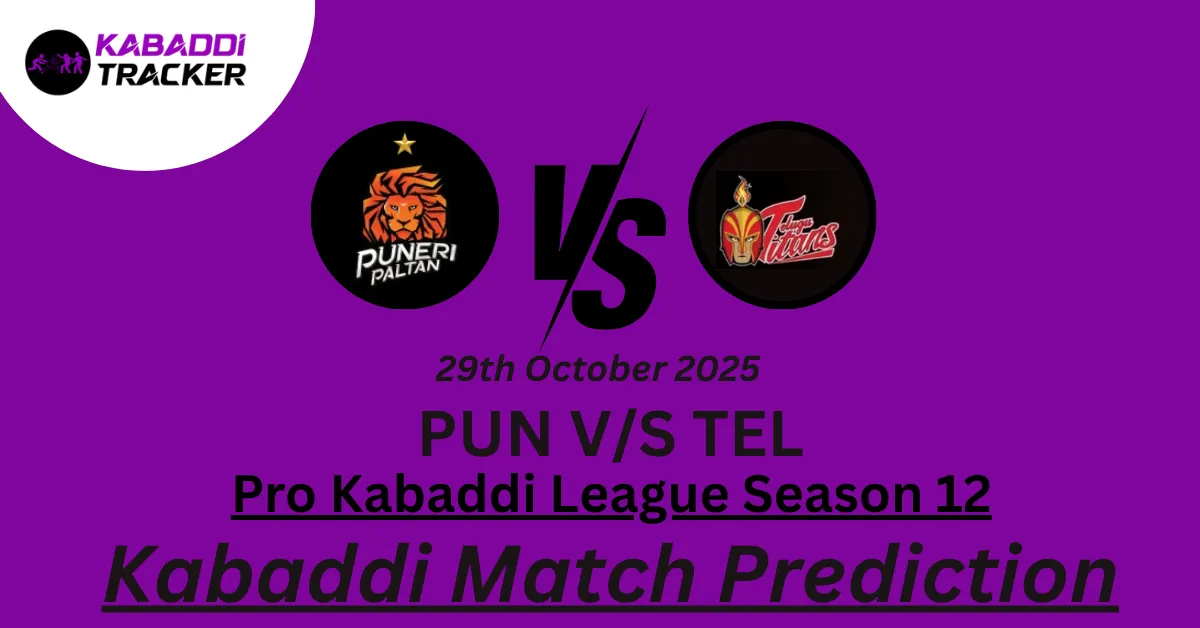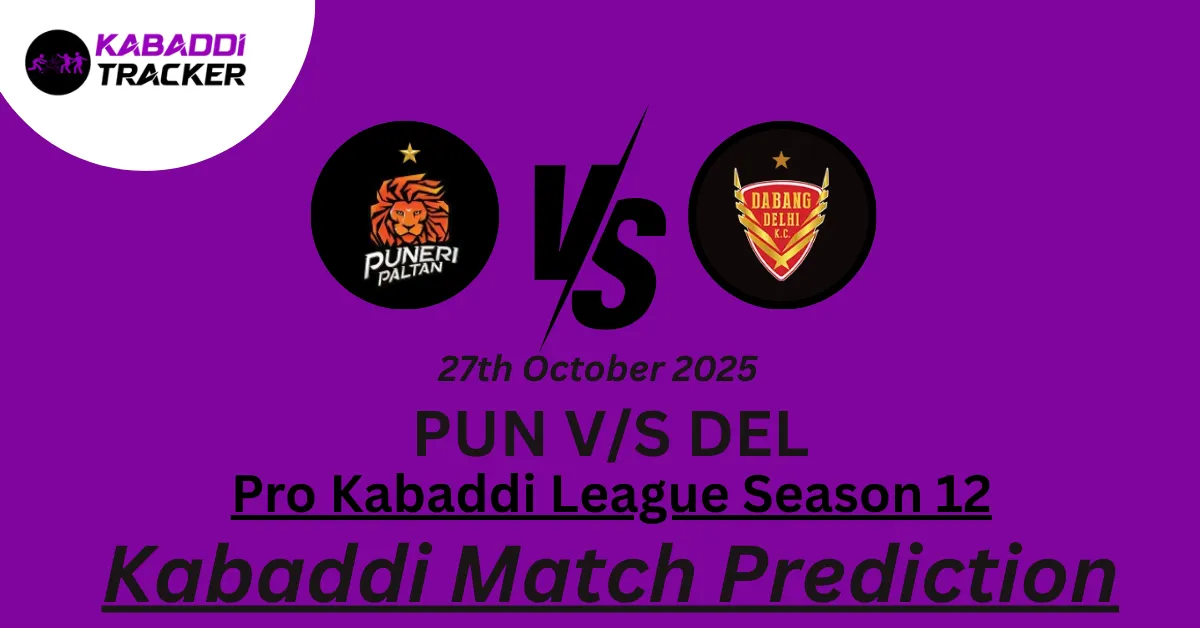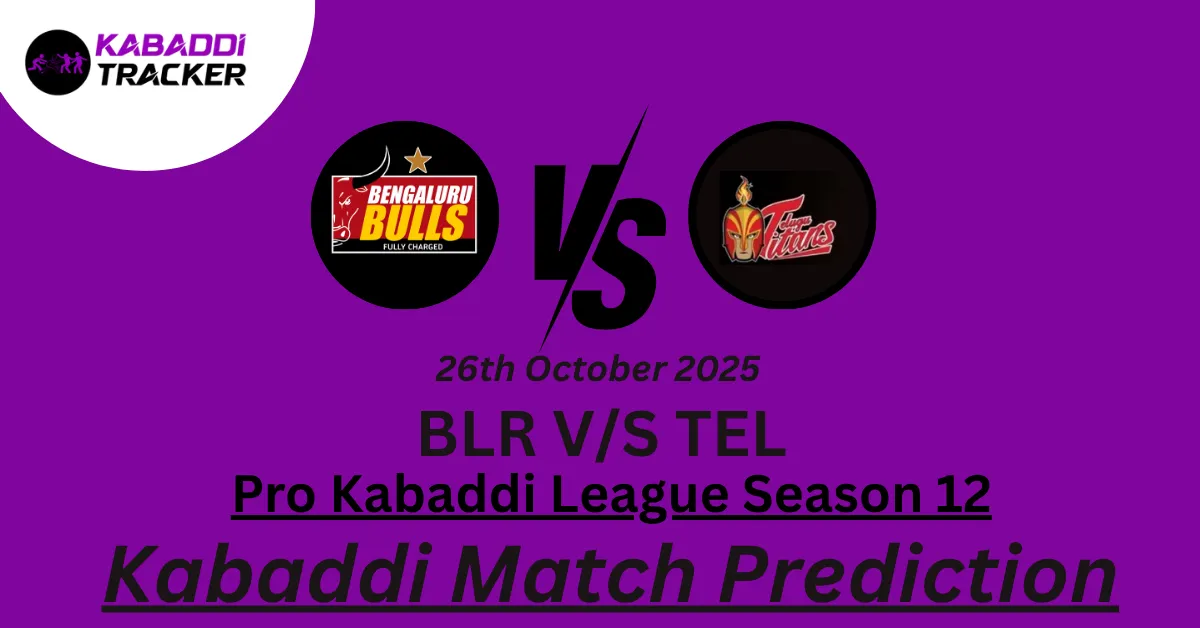The Pro Kabaddi League (PKL) has arisen as perhaps India’s most well-known sporting occasion, dazzling the country with its mix of athleticism, strategy, and sheer fervor. Since its beginning, PKL has not just revived interest in the conventional sport of kabaddi but also carried it to the front of current sports diversion. Integral to the league’s success are its obvious rules and regulations that administer the gameplay. In this article, we will dive into the various aspects of PKL rules, investigating the intricacies that make this league an undeniably exhilarating spectacle for fans across the country.
The Foundation of PKL: Understanding the Basics
At its center, kabaddi is a physical game that requires both physical prowess and strategic discernment. The PKL rules expand upon this foundation to make a zapping rivalry that keeps fans as eager and anxious as ever. The game is played between two teams, each consisting of seven players. The essential goal is for a player, known as the “raider,” to cross into the opposing group’s half, tag as numerous defenders as possible, and return to their own half without being handled. The defenders, then again, strive to stop the raider by tackling them and keeping them from getting back to their halves.
Also Read – Top 10 Kabaddi Stadiums in India
Raider’s Role and Regulations of the Pro Kabaddi League
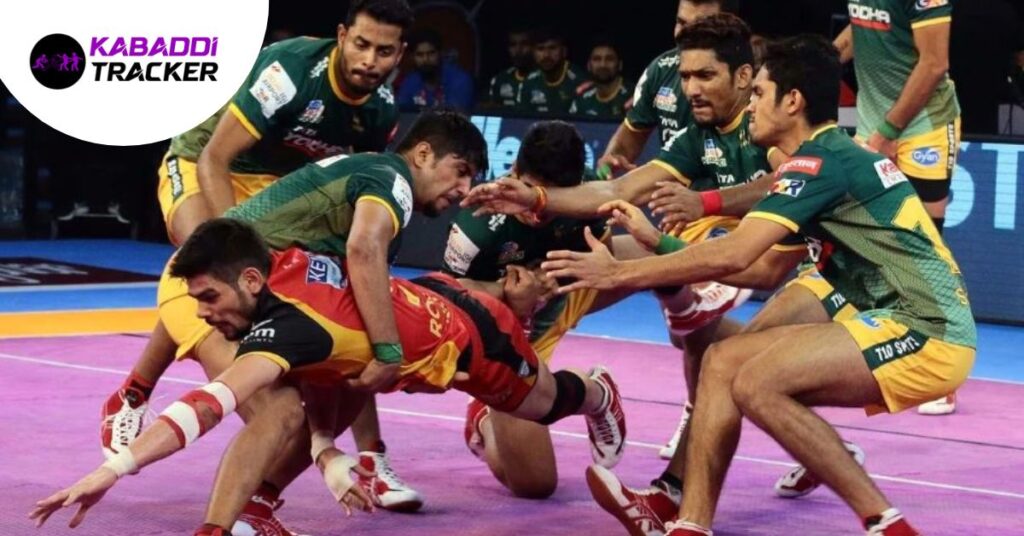
The raider holds a critical role in kabaddi, requiring a blend of speed, dexterity, and strategy. According to PKL rules, a raider must recite “kabaddi” over and over while on the rival’s side of the court to prove that they are breathing out without taking another breath. This reciting, known as the “raider’s serenade,” is a significant component, adding a component of suspense as the raider seeks to expand their label count while pausing their breathing.
To score points, a raider must touch at least one defender and return to their half prior to breathing in. Each labeled defender earns the raider a point, while successfully returning without being handled scores extra points. In any case, on the off chance that a raider is handled and kept from returning, the defenders procure a point, and the raider is pronounced “out.”
Defensive Strategy and Tackling Rules of the Pro Kabaddi League
Defenders play a significant role in stopping the raider’s advances. A defender can score points by tackling the raider and keeping them from returning. Tackling requires a blend of timing, cooperation, and expectation. A tackle is considered successful when something like one defender grabs the raider and holds them until they are totally immobilized.
PKL rules emphasize player safety, ensuring that tackles are executed within reasonable bounds. Dangerous tackles, such as those focusing on the neck or head region, are strictly prohibited and result in penalties. Players are also prohibited from using excessive power or taking part in unsportsmanlike conduct.
Timeouts and Bonus Points of the Pro Kabaddi League
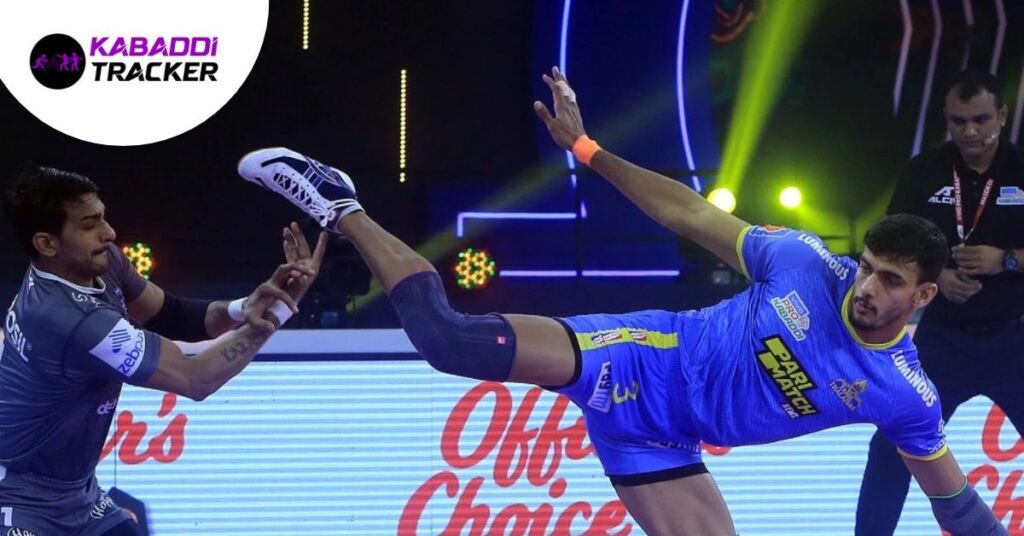
PKL introduces the idea of a “break” to the game, allowing each group to take one strategic break during every half. This pause in the game provides teams an amazing chance to refocus, strategize, slow down, and rest amidst the fast-paced activity.
Another interesting feature of PKL rules is the idea of “bonus points.” In the event that a raider manages to label at least two defenders during a single raid, they procure a bonus guide that’s more toward the normal points scored. This standard encourages raiders to proceed with carefully weighed-out courses of action and go for various tags in a single raid.
Technical Points and All-Outs of the Pro Kabaddi League
Technical points are granted to a group when the opposition commits rule violations, such as deferring the restart of the game after a stoppage. These points are added to a group’s score without requiring a raid.
The idea of an “all-out” is one more thrilling component of PKL. An all-out occurs when a whole group is successfully handled, resulting in all seven of their players being pronounced “out.” The going-after group earns extra points for executing an all-out, and the safeguarding group must send in a totally new arrangement.
Strategies and Tactics of the Pro Kabaddi League
While the basic rules of kabaddi stay consistent, PKL has carried a strategic profundity to the game that keeps fans and teams locked in. Teams utilize various tactics, both on the offensive and defensive fronts, to acquire an advantage
Offensive Strategies:
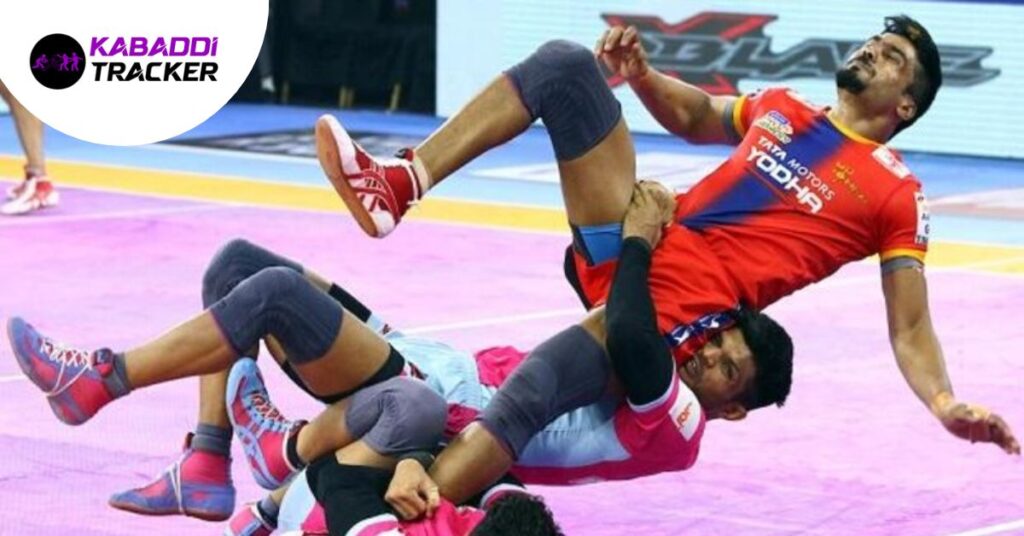
1. Raider Rotations: Teams often turn their raiders to keep the opposition guessing. Various raiders bring remarkable styles and strengths, adding a component of surprise to the game.
2. Do-or-Pass on Raids: PKL presented the “Sink or swim” raid rule. In a Sink or swim raid, the raider must either score a point or return without a point. This standard intensifies the pressure on the raider and spices up the strategic approach.
3. Empty Raids: A raid where the raider returns without labeling any defender is referred to as a “vacant raid.” Void raids provide the guarding group with a benefit, as they procure a point without handling the raider.
Defensive Strategies:
1. Corner and Chain Tackles: Defenders often work in tandem to perform corner and chain tackles. In a corner tackle, defenders force the raider towards the side of the court, restricting their options. In a chain tackle, different defenders take part in a planned assault to secure a successful tackle.
2. Super Tackles: A super tackle occurs when just three defenders are on the court during a raid. Assuming that these three defenders successfully tackle the raider, their group earns two points instead of the usual one.
Video Referral System of the Pro Kabaddi League
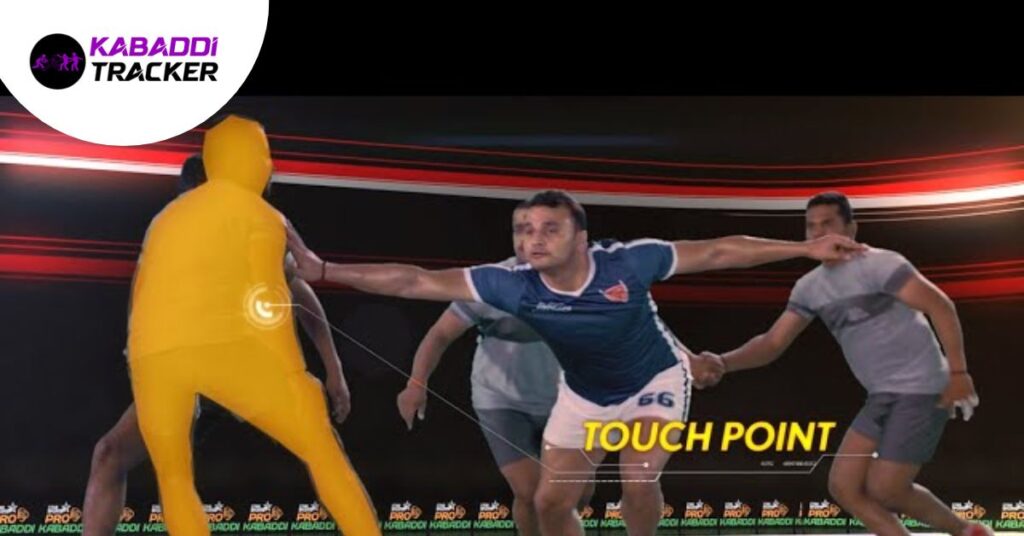
Also Read – Top 10 Kabaddi Stadiums in The World
To ensure fair play and address expected controversies, PKL has executed a Video Referral System (VRS). Each group can challenge a limit of two decisions for every match, requesting a video survey of specific incidents, such as points granted or players pronounced “out.” In the event that the VRS confirms the challenge, the group retains the option to challenge once more.
Fair Play and Code of Conduct of the Pro Kabaddi League
PKL emphasizes the significance of sportsmanship and fair play. Players are supposed to maintain an elevated requirement of conduct and uprightness. Unsportsmanlike ways of behaving, such as provoking opponents or using offensive language, can result in penalties for the player and the group. This focus on fair play ensures that PKL maintains its standing as a family-accommodating sporting occasion.
Evolution of Rules of the Pro Kabaddi League
Since its beginning, PKL has developed its rules to make harmony among customs and innovation. The league acquainted ladies’ kabaddi with the crease, providing a stage for female athletes to showcase their skills. The presentation of new rules, such as bonus points and the Video Referral System, has kept the league dynamic and responsive to the changing demands of the game and its crowd.
The Pro Kabaddi League has successfully caught the creative minds of sports enthusiasts across India and then some. Its exceptional mix of physical prowess, smartness, and strategic advancement has propelled kabaddi into the cutting-edge sporting spotlight. The painstakingly created rules and regulations of PKL serve as the structure for this enrapturing spectacle, ensuring that players have a fair and serious stage to showcase their talents. As the league continues to develop and advance, it will be fascinating to witness how the rules adjust to new challenges and innovations, all while preserving the essence of this old sport. The Pro Kabaddi League stands as a testament to the force of custom and development harmoniously coexisting in the realm of sports.

